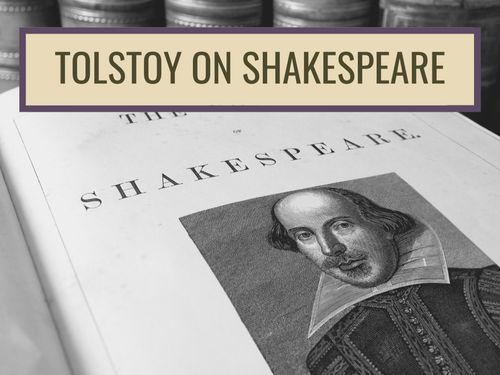Why Tolstoy disliked Shakespeare
Sep 09, 2021 · 2 mins read
0
Share

Tolstoy was a giant of 19th century literature. Shakespeare dominated the literary world of the 16th century, and his plays are enacted to this day. In this case, though, great minds don’t think alike. Find out why Tolstoy felt “repulsion and tedium” while reading Shakespeare👇👇
Save
Share
In his essay on Shakespeare, Tolstoy writes that he read the English playwright in Russian, English, and German. At the age of 75, Tolstoy finally read all of Shakespeare once again, and concluded Shakespeare’s merits are “non-existent” and his “ethical understanding” is evil.
Save
Share
On King Lear: Using the opening scene as an example, Tolstoy slams Shakespeare’s writing for its lack of elegance and overall shoddiness. He finds many famous monologues—such as that of Hamlet— unnatural and unartistic.
Save
Share
Characters. Tolstoy writes Shakespeare makes his characters act in ways that are “out of keeping with their definite character” just so that they can land in “tragic positions which are impossible.”
Save
Share
A guide to life? Gervinus, a Shakeapeare admirer, called him “a teacher of most indisputable ethical authority.” But in Shakespeare Tolstoy sees arbitrary violence, unchecked passion, and the wretched insistence that no one can quite conserve “his life from evil.”
Save
Share
No convictions. Tolstoy’s beef with Shakespeare is that he had “no convictions at all,” religious or otherwise. Instead of taking clear philosophical positions on important subjects, Shakespeare filled his dramas with all “possible events, horrors, fooleries, and effects.”
Save
Share
Pro captu lectoris: A book’s destiny is decided by the audience of its time. In trying to understand the reasons behind Shakespeare’s fame, Tolstoy attributes it to external causes like the irreligious and immoral beliefs of the upper class in those days.
Save
Share
‘Like a lump of snow’: Tolstoy ascribes Shakespeare’s rise to ‘casual circumstance’, comparing his fame to a lump of snow that grew over time. As popular interest grew, more critics wrote about him, till it reached a level of ‘insane worship’.
Save
Share
Bottom line. Tolstoy deviates from the widespread public consensus, both of his age and ours, on the importance and value of Shakespeare’s work. Tolstoy wanted to see dramatic consistency and ethical insight in art, and he found neither in Shakespeare.
Save
Share
0